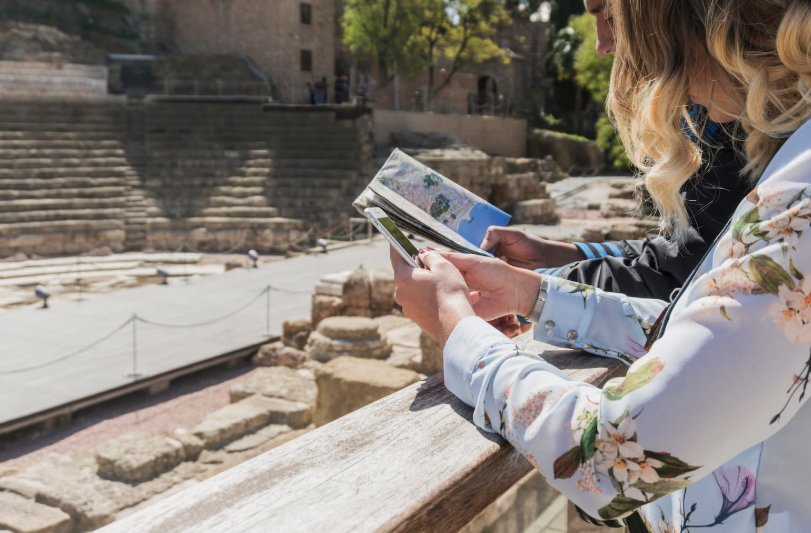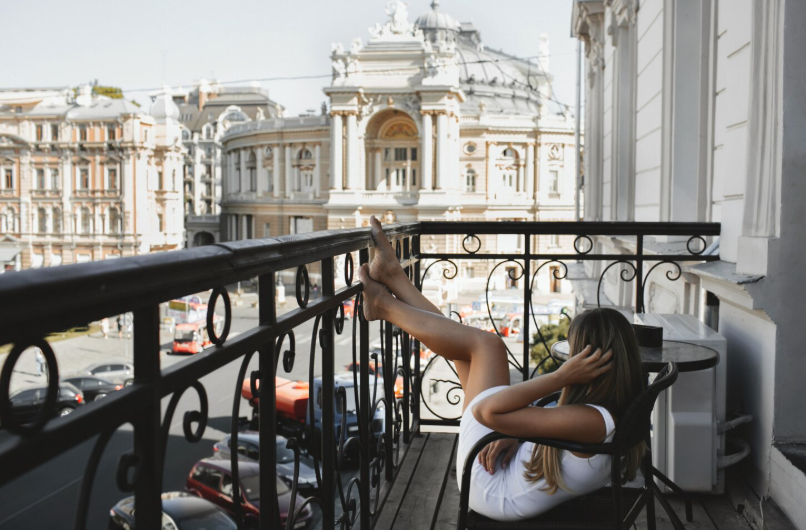
by Dulce Navarro | Feb 9, 2026 | Culture, Education, Europe, Experiences, Lifestyle, Luxury, Travel
Italy Beyond the Guidebooks: A Study in Timeless Travel
Italy has long occupied a singular place in the imagination of global travelers. It is a country synonymous with art, architecture, gastronomy, and a certain cultivated elegance of living. Yet beyond the familiar imagery of the Colosseum, the canals of Venice, and the rolling hills of Tuscany lies a deeper Italy — one that rewards thoughtful exploration and cultural curiosity.
To travel Italy beyond the guidebooks is to experience it not as a checklist of monuments, but as a living, breathing civilization layered with history, regional nuance, and enduring traditions. It is a study in timeless travel — one that values depth over speed and connection over spectacle.
The Enduring Power of History
Italy’s historical continuity is unparalleled. Few countries offer such visible, tangible access to civilizations spanning millennia. Roman engineering, Renaissance artistry, Baroque grandeur, and modern Italian design coexist seamlessly within daily life. In Rome, ancient ruins are not confined to archaeological parks; they appear unexpectedly beneath apartment buildings and beside busy streets. In Florence, the Renaissance is not merely a historical period but a defining identity.
Yet timeless travel requires more than admiration of landmarks. It involves understanding context. The Roman Forum represents not only architectural achievement but the foundation of Western governance. Venice’s maritime dominance shaped global trade routes for centuries. Sicily reflects layers of Greek, Arab, Norman, and Spanish influence, each leaving an imprint on language, cuisine, and culture. Recognizing these intersections transforms travel into education.
The Art of Slow Exploration
Italy is best experienced slowly. While high-speed trains efficiently connect Milan, Florence, and Naples, the essence of the country often lies in smaller towns and quieter corners. Places like Orvieto, Parma, Lecce, and Bergamo offer architectural beauty and culinary excellence without overwhelming crowds.
Slow exploration allows travelers to observe everyday rhythms: the morning ritual of espresso at a neighborhood bar, the midday pausa when shops close, the evening passeggiata where communities gather for conversation. These moments reveal the Italian philosophy of balance — where productivity coexists with pleasure, and time is measured in experiences rather than efficiency.
Regional Identity: A Country of Distinct Worlds
One of Italy’s most fascinating characteristics is its strong regional identity. Before unification in 1861, Italy consisted of independent states, each with its own governance, dialect, and traditions. This historical fragmentation continues to shape modern Italy.
Northern regions such as Lombardy and Veneto display Central European influences in architecture and cuisine, with risotto and polenta as staples. Central Italy, including Tuscany and Umbria, celebrates olive oil, rustic breads, and bold red wines. Southern regions like Campania and Puglia emphasize Mediterranean flavors — tomatoes, seafood, and sun-ripened produce. Sicily stands apart with its complex cultural heritage and distinct culinary traditions.
Traveling beyond guidebooks means appreciating these differences rather than seeking a single “Italian” experience. Each region offers a microcosm of culture, shaped by geography and history.
Culinary Excellence as Cultural Expression
Italian cuisine is globally recognized, yet its authenticity is best understood locally. True culinary exploration in Italy involves seasonal ingredients, regional specialties, and respect for tradition. Dining is rarely rushed; it is an act of connection.
In Bologna, handmade tagliatelle al ragù reflects centuries of culinary refinement. In Naples, pizza is elevated to artisanal craftsmanship, protected by tradition and strict preparation standards. In Piedmont, truffles and Barolo wines speak to a heritage of agricultural excellence.
Markets offer insight into daily life. Conversations with vendors, sampling regional cheeses, and understanding the origin of ingredients deepen appreciation for Italy’s gastronomic philosophy: simplicity, quality, and provenance.
Architecture and Design: Living Aesthetics
Italy’s aesthetic sensibility extends beyond museums. Design permeates fashion, furniture, automotive engineering, and urban planning. Milan remains a global capital of design innovation, hosting Salone del Mobile and showcasing cutting-edge creativity.
Yet even small towns reflect architectural harmony. From Romanesque churches in Emilia-Romagna to whitewashed trulli houses in Puglia, built environments reveal centuries of adaptation to climate and culture. Italian cities demonstrate a rare continuity — where preservation and contemporary life coexist gracefully.
Faith, Festivals, and Community
Religious and civic festivals continue to shape community life across Italy. From Siena’s Palio horse race to Easter processions in southern villages, traditions are maintained with remarkable dedication. These events are not performances for tourists; they are authentic expressions of local identity.
Participating respectfully in such celebrations provides insight into Italy’s communal values. The emphasis on family, ritual, and continuity fosters a sense of belonging that transcends generations.
Nature’s Quiet Grandeur
Beyond its cities, Italy offers extraordinary natural landscapes. The Dolomites present dramatic alpine scenery ideal for hiking and skiing. The Amalfi Coast combines rugged cliffs with azure waters. Sardinia and Sicily boast pristine beaches and ancient ruins set against Mediterranean horizons.
In regions like Umbria and Basilicata, rural landscapes offer solitude and reflection. These quieter settings underscore the timeless aspect of Italian travel — where nature and history coexist without interruption.
The Value of Cultural Literacy
Italy rewards those who approach it with curiosity and preparation. Learning key phrases in Italian enhances engagement and demonstrates respect. Understanding historical context enriches site visits. Observing social customs — such as greeting shopkeepers or adhering to dining etiquette — reflects cultural sensitivity.
Timeless travel is rooted in cultural literacy. It requires attentiveness, humility, and a willingness to move beyond surface impressions. In return, Italy offers depth, authenticity, and perspective.
Conclusion
Italy beyond the guidebooks is not defined by hidden destinations alone, but by mindset. It is about embracing nuance, honoring regional identity, and engaging thoughtfully with history and community. When approached with patience and curiosity, Italy reveals itself as more than a destination — it becomes a living narrative of resilience, artistry, and enduring beauty.
Such travel leaves a lasting imprint. It cultivates cultural intelligence, deepens global awareness, and reminds us that true luxury lies not in excess, but in understanding.
Stay Connected for More Travel and Lifestyle Inspiration. For more insights into travel, culture, and lifestyle tips, follow me on Instagram @salvadorordorica. If you’re seeking professional translation and localization services to enhance your global ventures, visit The Spanish Group — your trusted partner in bridging cultures worldwide.

by Dulce Navarro | Feb 9, 2026 | Europe, Experiences, Lifestyle, Luxury, Travel
Traveling Europe Like an Insider, Not a Tourist
Europe has long captured the imagination of travelers around the world. From the romantic streets of Paris to the sun-drenched coastlines of the Mediterranean, it offers a rich mosaic of cultures, languages, and histories. Yet, there is a profound difference between visiting Europe as a tourist and experiencing it as an insider. The former checks landmarks off a list; the latter builds meaningful connections with people, traditions, and local rhythms.
Traveling like an insider requires intention. It means slowing down, embracing authenticity, and looking beyond the obvious. For those who value cultural depth and global perspective, Europe offers endless opportunities to move beyond sightseeing and into genuine discovery.
Rethink the Itinerary: Depth Over Distance
One of the most common travel mistakes is trying to see too much in too little time. Racing from London to Paris to Rome in a single week may look impressive on paper, but it rarely allows for meaningful engagement. Insiders understand that Europe rewards those who linger.
Instead of five countries in seven days, consider spending that time exploring one region thoroughly. In Italy, for example, you might pair Florence with smaller Tuscan towns like Lucca or Pienza. In Spain, balance Barcelona with Girona or the Priorat wine region. By focusing on depth rather than distance, you begin to understand how daily life unfolds — how markets operate, how locals socialize, and how neighborhoods shift from morning calm to evening vibrancy.
Stay Where Locals Live
Accommodation significantly shapes the travel experience. While luxury hotels provide comfort, insider travel often benefits from staying in residential neighborhoods rather than tourist centers. Renting an apartment or choosing a boutique hotel in a local district allows you to experience everyday life — buying bread from the corner bakery, greeting neighbors at a café, or strolling through a park filled with families instead of tour groups.
In Paris, this might mean staying in the 11th arrondissement instead of directly next to the Eiffel Tower. In Rome, Trastevere offers a more authentic atmosphere than areas immediately surrounding the Colosseum. These subtle shifts in location dramatically change the rhythm of your trip.
Embrace Local Dining Culture
Food is one of Europe’s greatest cultural expressions. However, insider dining goes beyond choosing restaurants with the highest online ratings. It involves understanding local customs, meal times, and regional specialties.
In Spain, dinner often begins after 9:00 PM. In Italy, ordering a cappuccino after lunch may quietly signal that you are unfamiliar with local habits. In France, lingering over multiple courses is part of the experience, not an indulgence. Visiting neighborhood markets, speaking with vendors, and asking servers for recommendations transforms meals into cultural exchanges.
Additionally, exploring regional cuisine — rather than sticking to globally recognized dishes — offers a more nuanced understanding of each destination. Northern Italy’s risottos differ significantly from southern Italy’s seafood traditions. The Basque Country’s pintxos culture contrasts with Andalusian tapas. These differences tell stories of geography, history, and identity.
Learn the Language — Even a Little
Language is the gateway to cultural immersion. While English is widely spoken in many European cities, making the effort to learn key phrases in the local language signals respect and openness. Simple greetings, polite expressions, and basic conversational phrases can transform interactions.
Saying “Buongiorno,” “Merci,” or “Gracias” creates immediate rapport. Even imperfect pronunciation is typically met with appreciation. Beyond courtesy, language deepens understanding. Street signs, menus, and local media become more accessible, allowing you to absorb the environment rather than merely observe it.
Understand the Historical Context
Europe’s cities are layered with centuries of history. To travel like an insider is to recognize that each building, square, and monument exists within a broader narrative. Before arriving, invest time in understanding the political, artistic, and social movements that shaped your destination.
Walking through Berlin carries different meaning when you understand the impact of division and reunification. Visiting Prague feels richer when you appreciate its role in Central European history. Even small towns often have stories tied to trade routes, wars, or cultural renaissances.
Guided tours led by historians or local experts can provide invaluable insight, especially when they focus on thematic depth rather than surface-level overviews. Private walking tours, culinary tours, or architecture-focused explorations often reveal dimensions of a city that standard sightseeing overlooks.
Travel During the Shoulder Season
Timing matters. Traveling during the shoulder seasons — typically spring and early autumn — allows for a more relaxed and authentic experience. Fewer crowds mean more meaningful interactions, easier restaurant reservations, and a calmer atmosphere overall.
In cities like Venice, Barcelona, or Amsterdam, peak summer tourism can overwhelm local infrastructure and dilute authenticity. Visiting in May or September offers pleasant weather without the intensity of high-season crowds. You gain access not just to landmarks, but to the city’s true rhythm.
Engage with Local Culture and Events
Insider travel often involves participating in local life rather than observing from a distance. Attend neighborhood festivals, concerts, art exhibitions, or sporting events. Visit community markets and seasonal fairs. These gatherings reflect the living culture of a place, not just its historical past.
For example, experiencing a local football match in Italy or Spain offers insight into regional identity and passion. Attending a classical concert in Vienna connects you to centuries of musical tradition. Participating respectfully in these events fosters genuine connection.
Prioritize Meaningful Connections
Perhaps the most important distinction between a tourist and an insider lies in mindset. Insider travel values curiosity over consumption. It involves conversations with shopkeepers, discussions with local guides, and openness to unexpected detours.
Europe’s diversity — linguistic, culinary, architectural, and cultural — invites travelers to move beyond surface impressions. By slowing down, engaging thoughtfully, and respecting local customs, you cultivate experiences that endure far beyond photographs.
The Value of Cultural Intelligence
Traveling Europe like an insider ultimately builds cultural intelligence — the ability to navigate diverse environments with sensitivity and awareness. In today’s interconnected world, this skill extends beyond leisure. It informs business decisions, strengthens international relationships, and broadens perspective.
Authentic travel fosters empathy. It reminds us that traditions evolve, identities are layered, and cultures deserve respect. When approached thoughtfully, Europe becomes not just a destination, but a classroom — one that teaches nuance, patience, and global understanding.
Conclusion
To travel Europe like an insider is to shift from passive sightseeing to active engagement. It is about quality over quantity, authenticity over spectacle, and connection over convenience. By embracing local culture, understanding history, and approaching each destination with humility and curiosity, you transform travel into something far more meaningful.
Stay Connected for More Travel and Lifestyle Inspiration. For more insights into travel, culture, and lifestyle tips, follow me on Instagram @salvadorordorica. If you’re seeking professional translation and localization services to enhance your global ventures, visit The Spanish Group — your trusted partner in bridging cultures worldwide.

by Dulce Navarro | Feb 6, 2026 | Countries, Culture, Europe, Experiences, Lifestyle, Luxury, Travel
France’s Quiet Luxury Regions You’ll Want to Return To
France has long defined the global standard of luxury. Yet beyond the glittering storefronts of Avenue Montaigne and the yachts of the Côte d’Azur lies a more nuanced and enduring form of refinement. Quiet luxury in France is not about spectacle; it is about heritage, craftsmanship, discretion, and a cultivated appreciation for beauty in everyday life. It is found in vineyard-lined hills, centuries-old stone villages, understated Michelin-starred dining rooms, and boutique hotels where service is intuitive rather than theatrical.
For the cultivated traveler seeking authenticity and elegance without excess, several regions in France offer an experience so balanced and refined that they invite return, again and again.
Provence Beyond the Postcard
While Provence is globally recognized for its lavender fields and sun-drenched landscapes, its true luxury lies in rhythm and restraint. Away from the summer crowds of Saint-Tropez, areas such as the Luberon and the Alpilles offer stone farmhouses transformed into refined private estates, olive groves stretching across gentle hills, and markets that celebrate seasonal abundance.
Here, luxury is waking to the scent of rosemary carried on a warm breeze, enjoying estate-bottled olive oil with fresh bread, and dining under the soft glow of lantern light. The region’s understated five-star properties blend seamlessly into the landscape, preserving architectural heritage while offering contemporary comfort. Cultural depth is equally present — Roman ruins, medieval abbeys, and ateliers of artisans who continue centuries-old traditions of ceramics, textiles, and perfumery.
Burgundy’s Cultivated Elegance
Burgundy is synonymous with some of the world’s most revered wines, yet its appeal extends far beyond the cellar. The region represents an intellectual form of luxury — one rooted in patience, terroir, and mastery. Vineyards such as those in the Côte de Nuits and Côte de Beaune are meticulously tended, reflecting generations of knowledge passed down with quiet pride.
Travelers can stay in restored châteaux or intimate countryside inns, where evenings are spent savoring multi-course tasting menus paired with exceptional vintages. Visits are often by appointment only, reinforcing the region’s discreet character. Beyond wine, Burgundy’s Romanesque churches, pastoral cycling routes, and refined gastronomy make it a destination for those who value depth over display.
The French Basque Country’s Understated Sophistication
Bordering Spain yet distinctly French, the Basque region offers a compelling blend of cultural identity and coastal beauty. Towns such as Saint-Jean-de-Luz and Espelette combine whitewashed façades with red timber accents, reflecting a unique architectural heritage.
Luxury here is defined by craftsmanship and culinary excellence. From linen workshops to traditional espadrille makers, artisanal production remains central to the region’s economy. Gastronomy, influenced by both French and Spanish traditions, features refined seafood dishes and innovative interpretations of Basque classics. Boutique hotels perched above the Atlantic provide sweeping views without the crowds found in more commercial Riviera settings.
Alsace’s Storybook Refinement
In northeastern France, Alsace feels almost suspended in time. Half-timbered houses painted in soft pastels line cobblestone streets, while vineyards stretch toward the Vosges Mountains. Strasbourg and Colmar offer architectural richness and cultural sophistication, yet much of the region’s luxury is discovered in its smaller villages.
Alsace’s winemaking tradition rivals that of more famous regions, particularly for Riesling and Gewürztraminer. Private tastings and vineyard stays allow travelers to connect personally with producers. Culinary experiences blend French technique with Germanic heartiness, resulting in a distinctive gastronomic identity. The overall atmosphere is one of cultivated calm — refined yet warmly welcoming.
Dordogne’s Timeless Grandeur
The Dordogne region in southwestern France offers an immersion into medieval history and pastoral beauty. Rolling countryside dotted with stone manors and fortified villages creates an atmosphere of timeless grandeur. Luxury estates here emphasize privacy and authenticity, often featuring restored architectural elements alongside modern amenities.
The region is celebrated for its truffles, foie gras, and walnut-based cuisine. Local markets remain central to daily life, reflecting a deep respect for regional produce. Visitors can explore prehistoric caves, paddle along serene rivers, or simply enjoy long, unhurried meals overlooking the countryside. It is a region that rewards those who slow down.
Normandy’s Coastal Serenity
Normandy’s dramatic coastline, historic significance, and pastoral landscapes make it an ideal destination for contemplative travel. Deauville and Honfleur offer elegant seaside charm without ostentation. Boutique hotels in restored manor houses provide refined comfort, often accompanied by panoramic ocean views.
Beyond its beaches, Normandy is known for its apple orchards, Calvados production, and exceptional dairy products. The region’s layered history — from medieval times to the pivotal events of World War II — adds intellectual depth to its natural beauty. Luxury here is subtle, reflective, and deeply rooted in place.
Why Quiet Luxury Endures
What distinguishes these regions is not merely their scenic beauty, but their commitment to preservation and authenticity. Quiet luxury thrives on intention: thoughtful design, sustainable agriculture, culinary integrity, and respect for cultural heritage. Rather than catering to fleeting trends, these destinations cultivate experiences that feel personal and enduring.
For business leaders and global travelers, such environments offer more than leisure. They provide clarity, inspiration, and a reminder that excellence often resides in subtlety. The absence of spectacle allows meaningful connection — to landscape, to history, and to oneself.
A Return, Not a Checklist
The most compelling destinations are those that invite return. Each season transforms Burgundy’s vineyards, Provence’s markets, or Normandy’s coastline. With every visit comes deeper familiarity — a favorite café, a trusted vintner, a hidden coastal path. This continuity creates emotional resonance, elevating travel from transaction to tradition.
France’s quiet luxury regions demonstrate that refinement need not be loud to be lasting. In their restraint lies their power — a power that draws discerning travelers back time and again.
Stay Connected for More Travel and Lifestyle Inspiration
Stay Connected for More Travel and Lifestyle Inspiration. For more insights into travel, culture, and lifestyle tips, follow me on Instagram @salvadorordorica. If you’re seeking professional translation and localization services to enhance your global ventures, visit The Spanish Group — your trusted partner in bridging cultures worldwide.

by Dulce Navarro | Feb 6, 2026 | Europe, Experiences, Lifestyle, Luxury, Travel
Europe’s Most Poetic Destinations for Slow Discovery
In an era defined by speed and efficiency, slow travel has emerged as a deliberate counterpoint. For the discerning traveler — particularly those accustomed to structured schedules and executive decision-making — Europe offers rare destinations where time expands rather than contracts. These are places best explored gradually, where meaning reveals itself not through spectacle, but through immersion.
Europe’s poetic destinations are not necessarily the loudest or most photographed. They are the towns, landscapes, and cities that reward patience — places where atmosphere, history, and daily life intertwine seamlessly. To discover them slowly is to rediscover the art of observation.
Lake Bled, Slovenia: Alpine Stillness
At first glance, Lake Bled appears almost too picturesque to be real. A small island crowned by a church rises from glacial waters, framed by forested hills and the Julian Alps. Yet beyond its postcard beauty lies a rhythm that invites contemplation.
Rather than rushing through for photographs, the poetic traveler stays long enough to walk the full perimeter of the lake, row a traditional wooden pletna boat to the island, and dine quietly in a lakeside restaurant as evening mist settles over the water. Bled’s charm is not theatrical; it is restorative.
Colmar, France: A Living Storybook
In France’s Alsace region, Colmar’s half-timbered houses and flower-lined canals evoke a storybook atmosphere. Yet its true appeal lies beyond aesthetics. Colmar reflects centuries of French and German cultural exchange, visible in its architecture, cuisine, and language.
Exploring slowly means visiting local markets, tasting regional wines such as Riesling and Gewürztraminer, and engaging with artisans who preserve Alsatian traditions. The Unterlinden Museum, home to the Isenheim Altarpiece, offers a profound encounter with Renaissance art — best appreciated without haste.
Porto, Portugal: Melancholy and Maritime Grace
Porto carries a quiet intensity. Its tiled façades, steep streets, and sweeping views of the Douro River create an atmosphere tinged with saudade — the Portuguese sense of longing.
A slow discovery of Porto involves lingering in historic cafés, visiting port wine cellars across the river in Vila Nova de Gaia, and wandering the Ribeira district at dusk. The city unfolds gradually, revealing depth in its maritime history and resilient spirit.
Umbria, Italy: The Green Heart
Often overshadowed by Tuscany, Umbria remains one of Italy’s most poetic regions. Rolling hills, medieval hilltop towns, and quiet monasteries define its landscape. Assisi, Spello, and Montefalco offer artistic and spiritual heritage without overwhelming crowds.
Slow travel here may include participating in a local olive harvest, attending a small-town festival, or simply sitting in a piazza observing daily rituals. Umbrian cuisine — rustic, seasonal, and sincere — reinforces the region’s understated elegance.
Bruges, Belgium: Reflections in Water
Bruges is often visited as a day trip, yet its poetic essence emerges after sunset. When canals reflect medieval facades and carriage wheels echo softly against cobblestones, the city feels suspended in time.
Remaining overnight allows for early morning walks before tour groups arrive. Visiting independent lace workshops or sampling artisanal chocolate becomes less transactional and more conversational. Bruges rewards those who stay.
The Scottish Highlands: Vastness and Silence
Few landscapes in Europe evoke introspection as powerfully as the Scottish Highlands. Expansive moors, mirrored lochs, and shifting skies create a dramatic yet meditative environment.
A slow journey through the Highlands may involve scenic drives, hikes through Glencoe, or evenings spent in a historic inn listening to local folklore. Here, silence becomes part of the experience — a rare luxury in modern travel.
Ljubljana, Slovenia: A Capital of Human Scale
Slovenia’s capital offers a rare balance: cultural sophistication without urban overwhelm. Its pedestrian-friendly center, elegant bridges, and riverside cafés foster a sense of intimacy.
Ljubljana encourages unstructured exploration — browsing bookstores, attending small concerts, or simply observing daily life from a café terrace. Its scale makes it ideal for reflective travel.
The Value of Slow Discovery
What unites these destinations is not only their beauty, but their capacity to deepen perception. Slow discovery allows travelers to absorb context — historical nuance, regional dialects, culinary traditions, and architectural evolution.
For leaders and decision-makers, such journeys provide more than relaxation. They cultivate perspective. Observing how communities preserve heritage while adapting to modernity offers insights applicable far beyond travel.
Travel as Reflection
Poetic destinations encourage reflection. They prompt travelers to disconnect from digital urgency and reconnect with environment and self. Walking without agenda, engaging in unhurried conversation, and appreciating subtle details foster a deeper appreciation for culture.
Europe’s richness is not limited to its grand capitals. It resides equally in small towns, regional landscapes, and understated cities that prioritize authenticity over performance.
Conclusion: Choosing Depth Over Speed
Europe’s most poetic destinations are not defined by itinerary density, but by emotional resonance. They ask for patience and reward it generously. By embracing slow discovery, travelers transform movement into meaning and observation into insight.
In choosing depth over speed, one discovers that the true luxury of travel is not access alone, but awareness — the ability to fully inhabit a place, even briefly, with attentiveness and respect.
Stay Connected for More Travel and Lifestyle Inspiration
For more insights into travel, culture, and lifestyle tips, follow me on Instagram @salvadorordorica. If you’re seeking professional translation and localization services to enhance your global ventures, visit The Spanish Group — your trusted partner in bridging cultures worldwide.

by Dulce Navarro | Feb 5, 2026 | Culture, Europe, Experiences, Lifestyle, Luxury, Travel
A Curated Approach to Luxury Travel in Europe
Luxury travel in Europe has evolved. Today’s discerning traveler is less interested in excess and more focused on experience, authenticity, and meaningful access. True luxury is no longer defined solely by five-star accommodations or first-class flights — it is measured by thoughtful curation, seamless execution, cultural depth, and exclusivity without ostentation.
For executives, entrepreneurs, and global leaders accustomed to efficiency and refinement, a curated European journey offers something rare: the opportunity to experience the continent’s cultural richness with precision, privacy, and intention.
Redefining Luxury: From Opulence to Intentionality
Modern luxury travel emphasizes personalization. Rather than following popular itineraries, curated travel focuses on understanding the traveler’s preferences — art, gastronomy, design, history, wellness — and shaping each destination accordingly.
In Florence, this may mean a private after-hours viewing of Renaissance masterpieces with an art historian. In Bordeaux, it could involve a tailored tasting at a family-owned château not typically open to the public. In the Swiss Alps, luxury might translate into a discreet mountain lodge offering both privacy and panoramic serenity.
The essence of curated travel lies in alignment: matching the right experiences with the right traveler.
Choosing Destinations with Depth
Europe offers an extraordinary concentration of culture within relatively short distances. A curated approach prioritizes depth over quantity. Instead of attempting to “see it all,” the refined traveler may choose two or three destinations and explore them thoroughly.
Consider pairing Milan’s contemporary design scene with Lake Como’s understated elegance. Or combine Lisbon’s architectural charm with the quiet vineyards of the Alentejo region. By limiting geographic scope, one expands experiential richness.
The Art of Exceptional Accommodation
Luxury accommodations in Europe range from historic palaces to modern architectural icons. Yet selection should reflect more than star ratings. Location, privacy, service philosophy, and aesthetic coherence matter equally.
A restored 17th-century villa in Tuscany may offer a more memorable stay than a larger, more publicized hotel. In Paris, a boutique property on the Left Bank can provide intimacy and personalized service that larger establishments cannot replicate. In the Greek Islands, a cliffside retreat designed with minimalist restraint often delivers a more sophisticated atmosphere than overtly lavish resorts.
The goal is not spectacle, but harmony between environment and experience.
Private Access and Cultural Immersion
One of the defining elements of curated luxury travel is access. Europe’s cultural institutions, ateliers, vineyards, and historic estates often offer exclusive experiences to those who arrange thoughtfully in advance.
Private cooking lessons with Michelin-trained chefs in Barcelona, meetings with perfumers in Grasse, behind-the-scenes tours of fashion houses in Milan, or early entry to archaeological sites in Rome transform a trip from observational to participatory.
These experiences create intellectual and emotional engagement, elevating travel beyond leisure into enrichment.
Gastronomy as a Central Narrative
Europe’s culinary landscape is inseparable from its cultural identity. A curated approach treats gastronomy not as an afterthought, but as a central narrative of the journey.
In San Sebastián, this may involve a progression from traditional pintxos bars to avant-garde tasting menus. In Piedmont, it could mean exploring truffle season with a local hunter followed by an intimate wine pairing. In Provence, visiting local markets with a chef provides insight into regional terroir and tradition.
Thoughtful dining reservations — balancing iconic establishments with discreet neighborhood gems — ensure variety without redundancy.
Wellness and Balance
For high-performing individuals, travel often serves as both inspiration and restoration. Europe offers world-class wellness experiences rooted in centuries-old traditions.
Thermal baths in Hungary, thalassotherapy along the French Atlantic coast, spa retreats in the Dolomites, and holistic wellness programs in Mallorca integrate physical renewal with natural beauty. A curated itinerary incorporates these moments intentionally, ensuring balance between exploration and rejuvenation.
Seamless Logistics and Discretion
True luxury is invisible. Private transfers, efficient border crossings, multilingual guides, and carefully timed reservations eliminate friction. A well-designed itinerary anticipates potential challenges and resolves them before they surface.
Discretion is equally important. Many discerning travelers value privacy above all. Selecting less conspicuous entrances, arranging exclusive hours, and coordinating secure transportation are subtle yet essential components of refined travel planning.
Sustainability and Responsibility
A curated approach also recognizes the responsibility that accompanies luxury. Supporting local artisans, family-owned hotels, and sustainable producers ensures that tourism contributes positively to communities.
Choosing slower travel — such as scenic train journeys through Switzerland or northern Italy — reduces environmental impact while enhancing experiential value. Sustainable luxury is not contradictory; it is forward-thinking.
Creating Lasting Value
For company directors and global leaders, time is the most valuable asset. A curated European journey respects that reality by delivering concentrated quality. Rather than exhausting itineraries, it offers structured flexibility — space for spontaneous discovery within a carefully designed framework.
When travel is approached with intention, it becomes more than a temporary escape. It informs perspective, inspires creativity, and strengthens cultural awareness — qualities that translate into leadership and global vision.
Conclusion: The Future of Luxury Travel
Luxury travel in Europe is no longer about accumulation — of destinations, photographs, or visible status. It is about refinement, discernment, and access. It is about choosing experiences that resonate personally and culturally.
A curated approach transforms a journey into a narrative — one defined by elegance, authenticity, and thoughtful execution. For those willing to travel with purpose, Europe remains the ultimate canvas.
Stay Connected for More Travel and Lifestyle Inspiration
For more insights into travel, culture, and lifestyle tips, follow me on Instagram @salvadorordorica. If you’re seeking professional translation and localization services to enhance your global ventures, visit The Spanish Group — your trusted partner in bridging cultures worldwide.

by Dulce Navarro | Feb 5, 2026 | Europe, Experiences, Landscapes, Lifestyle, Luxury, Nature, Travel
Italy’s Secret Corners That Reward Patient Travelers
Italy has long captivated travelers with its iconic landmarks — the Colosseum, the canals of Venice, the Renaissance splendor of Florence, and the Amalfi Coast’s cinematic beauty. Yet beyond these celebrated destinations lies another Italy: quieter, slower, and profoundly authentic. For patient travelers willing to venture off the predictable path, the country reveals secret corners that offer cultural richness without spectacle and beauty without excess.
These lesser-known destinations are not defined by grand monuments alone, but by atmosphere, tradition, craftsmanship, and a deep sense of place. They reward those who value nuance over noise and immersion over itinerary.
Civita di Bagnoregio: The Dying City That Lives On
Perched atop a fragile plateau in Lazio, Civita di Bagnoregio is often referred to as “the dying city” due to the gradual erosion of its volcanic rock foundation. Accessible only by a pedestrian bridge, the village feels suspended in time. Arriving early in the morning or staying overnight allows visitors to experience its true magic — when the day-trippers have gone and silence returns to its stone alleyways.
Here, life moves deliberately. Local trattorias serve handmade pasta with wild boar ragù, and artisans maintain traditional crafts passed down through generations. The beauty of Civita is not in grand attractions but in its stillness, its golden-hour glow, and its reminder that preservation requires patience.
Le Marche: Italy Without the Crowds
Often overshadowed by neighboring Tuscany and Umbria, Le Marche offers rolling hills, medieval towns, Adriatic beaches, and exceptional cuisine — all without overwhelming tourism. Urbino, a UNESCO World Heritage Site, remains one of the finest examples of Renaissance urban planning, yet retains a lived-in authenticity.
Inland villages such as Offida and Corinaldo offer intimate wine tastings and local festivals that feel genuinely communal rather than curated for visitors. Verdicchio wines from the region are among Italy’s most elegant whites, and small family producers welcome curious travelers who seek conversation as much as tasting notes.
Matera: Ancient Stone and Modern Revival
Matera, in Basilicata, was once considered one of Italy’s poorest areas. Today, it stands as a testament to thoughtful preservation and renewal. Its “Sassi” districts — cave dwellings carved into limestone cliffs — date back thousands of years.
Staying in a restored cave hotel offers a unique balance between history and modern comfort. The experience is contemplative rather than flashy. Walking through Matera at dusk, when warm lights illuminate stone facades, provides a sense of continuity between ancient resilience and contemporary sophistication.
The Langhe: Beyond Barolo
While Piedmont’s Barolo wines are internationally renowned, the broader Langhe region offers a deeply rewarding landscape for those willing to explore beyond prestigious labels. Undulating vineyards, truffle forests, and quiet hilltop villages create a setting that feels both refined and rural.
White truffle season in autumn transforms the region into a gastronomic pilgrimage site, yet even outside peak months, small producers provide intimate tastings that emphasize heritage and terroir. The pace here encourages lingering — over a multi-course lunch, a walk through the vineyards, or a conversation with a winemaker whose family has tended the same soil for generations.
Trieste: A Cultural Crossroads
At Italy’s northeastern edge, Trieste stands apart. Influenced by Central Europe and shaped by its Austro-Hungarian past, the city offers grand cafés reminiscent of Vienna and a literary history that includes James Joyce.
Unlike more crowded Italian port cities, Trieste invites contemplation. Its seafront promenades, neoclassical architecture, and surrounding Karst plateau create a unique blend of Italian warmth and Central European elegance. It is a destination for readers, thinkers, and travelers who appreciate subtle complexity.
Salina: The Sophisticated Aeolian Escape
Among the Aeolian Islands north of Sicily, Salina offers volcanic landscapes and crystalline waters without the nightlife-driven reputation of nearby islands. Vineyards producing Malvasia wine cascade toward the sea, and small fishing villages maintain their rhythm despite growing interest from discerning travelers.
Days here unfold slowly — swimming in secluded coves, enjoying granita under shaded terraces, and watching sunsets that seem almost theatrical in their intensity. Salina rewards those who prefer understated elegance to overt glamour.
Patience as a Travel Philosophy
What unites these destinations is not obscurity for its own sake, but the depth they offer when approached thoughtfully. Traveling patiently in Italy means allowing time for conversation, accepting slower service as part of cultural rhythm, and choosing depth over quantity.
It means visiting small museums where curators speak passionately about a single collection, attending local markets where produce reflects regional seasons, and engaging with artisans whose work embodies centuries of refinement.
Italy’s secret corners are not hidden because they lack merit — they remain less crowded because they require intention. They ask travelers to look beyond checklists and to appreciate subtlety. In return, they offer something increasingly rare: authenticity without performance.
The Enduring Appeal of Discovery
For the company director or global executive accustomed to efficiency and structure, these destinations offer a different kind of luxury — the luxury of unhurried discovery. In quiet piazzas and vineyard-lined roads, one finds perspective. In conversations with local producers and historians, one gains insight into resilience, craftsmanship, and generational vision.
Italy’s secret corners remind us that the most meaningful journeys are rarely the most publicized. They are found in the spaces between destinations, in early mornings before the world awakens, and in the willingness to pause long enough to truly observe.
Stay Connected for More Travel and Lifestyle Inspiration
For more insights into travel, culture, and lifestyle tips, follow me on Instagram @salvadorordorica. If you’re seeking professional translation and localization services to enhance your global ventures, visit The Spanish Group — your trusted partner in bridging cultures worldwide.






